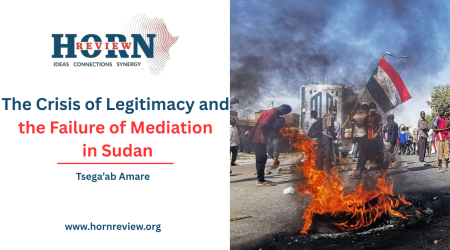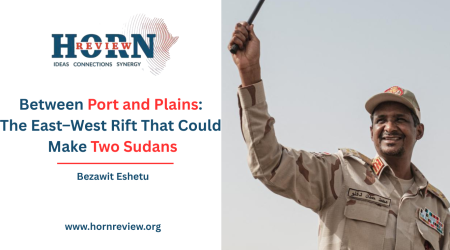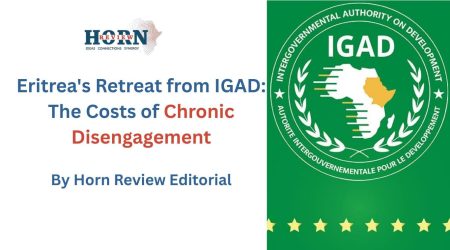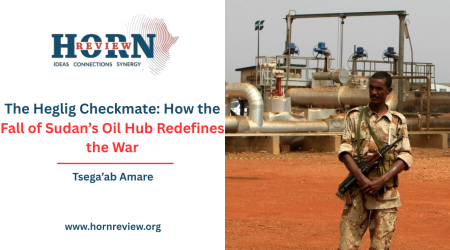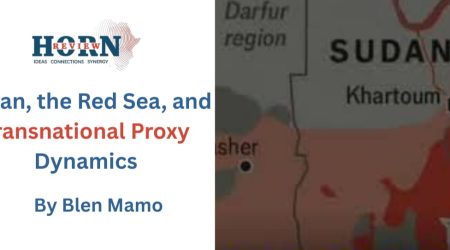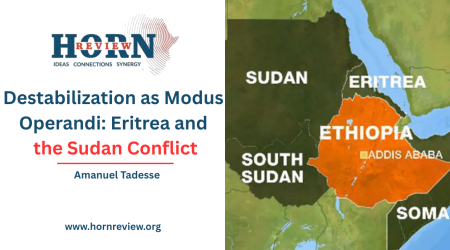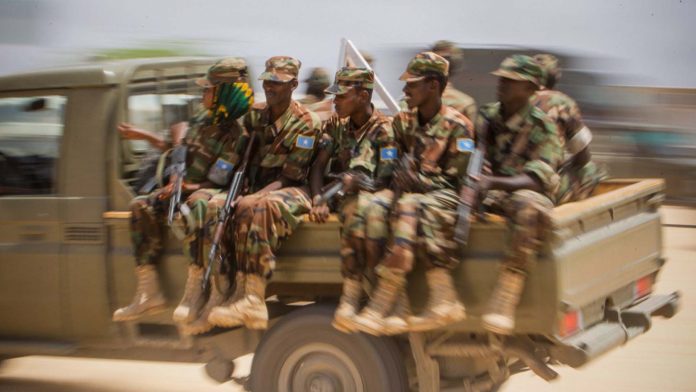
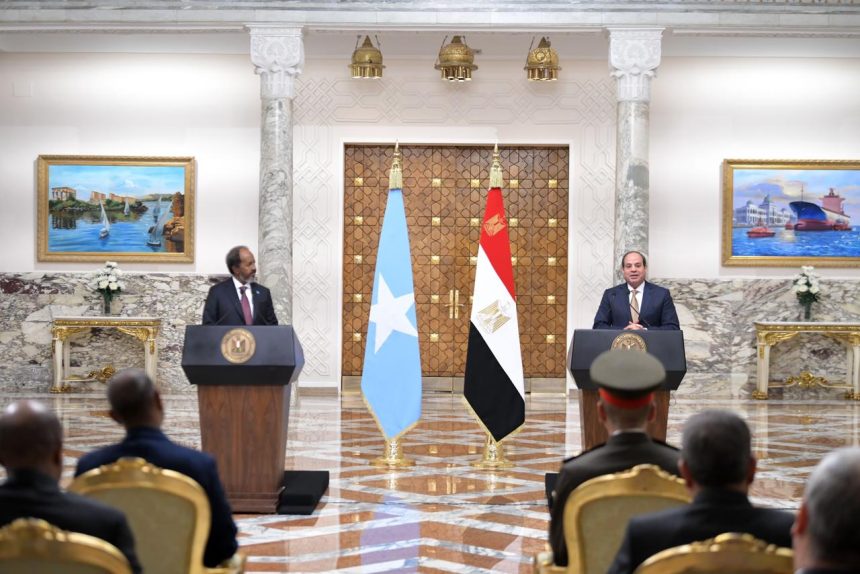
27
Jan
Egypt’s Strategic Engagement in the Horn of Africa: The Case of Somalia
Egypt’s historical ties to the Horn of Africa date back thousands of years, with its strategic position as a crossroads to the Arabian Peninsula and the Red Sea drawing the attention of numerous actors, including Egypt. However, beyond trade and cultural exchanges, Egypt’s interests in the region have been primarily focused on controlling or influencing the Nile River, which flows through several Horn countries. The Nile has been crucial to Egyptian society, providing water for agriculture, drinking, and energy. Throughout the 19th and 20th centuries, Egyptian leaders pursued policies aimed at asserting control over the river’s sources.
In recent years, Egypt’s engagement in the region has been notably shaped by the construction of the Grand Ethiopian Renaissance Dam (GERD) by Ethiopia. Tensions between Egypt and Ethiopia over the dam have intensified, with Egypt fearing that it will significantly reduce the flow of the Nile, thereby threatening its water security. Despite the fact that independent hydrological research and expert analysis suggest Egypt’s concerns may be exaggerated, the country’s anxiety about losing its historical control over the river and its deteriorating influence in regional water management has fueled its actions.
With negotiations with Ethiopia proving ineffective, Egypt has taken several initiatives to counter Ethiopia’s growing influence in the region and regain some leverage over the management of the Nile. These efforts are visible in Egypt’s relations with Somalia, Eritrea, and Sudan. A subtle Islamic element also underpins Egypt’s regional diplomacy, as the country has often used notions of Arab and Islamic solidarity to sway countries like Eritrea toward the Arab League and away from the African Union (AU). While Egypt once held significant diplomatic influence in the AU and other African blocs, Ethiopia’s strong ties to pan-Africanism have garnered greater support for its position in the Nile dispute.
Egypt’s Engagement in Somalia:
Egypt’s activities in Somalia reflect its broader geopolitical strategy to counterbalance Ethiopia’s influence. Somalia, with its strategic location along the Indian Ocean and its potential role in regional security, is a valuable partner for Egypt. Egypt has seized on recent tensions between Ethiopia and Somalia, capitalizing on the fallout to announce its intention to contribute troops to the AU peacekeeping mission in Somalia. This military engagement is part of a broader plan to form an alliance with Somalia and Eritrea to counter Ethiopia’s geopolitical interests.
Egypt’s relationship with Somalia also reflects its desire to strengthen its influence in the region in the face of Ethiopia’s growing dominance. Despite the positive momentum between Ethiopia and Somalia in the wake of the Ankara Agreement, Egypt remains committed to its military presence in Somalia, as evidenced by its plans to participate in the AU’s AUSSOM mission set to begin in 2025. For Egypt, this is a way to safeguard its regional influence, even as diplomatic relations between Ethiopia and Somalia improve.
Ethiopian Concerns:
Ethiopia’s concerns regarding Egypt’s military presence in Somalia are significant. Ethiopia has long stationed troops in Somalia, fighting the al-Shabaab terrorist group and seeking to stabilize the country. For Ethiopia, Somalia’s stability is crucial to its own national security.
The deployment of Egyptian troops in Somalia, especially in a period of strained relations between Cairo and Addis Ababa, is likely to raise tensions and further destabilize the region. Ethiopia may view this as a challenge to its interests, increasing the likelihood of escalating tensions or even armed conflict.
Geopolitical Interests:
Egypt’s primary geopolitical interest in the Horn of Africa remains its control over the Nile waters. The GERD has been a focal point of contention, with Egypt fearing that the dam will drastically reduce its share of the Nile’s waters. Despite ongoing negotiations, a comprehensive agreement between Egypt, Ethiopia, and Sudan remains elusive. Egypt’s continued engagement in the Horn, including its relations with Somalia and Eritrea, is a way to safeguard its interests in the region, particularly in relation to water security.
In addition to water security, Egypt has strategic interests in the Red Sea, particularly in the Bab-el-Mandeb Strait, a vital chokepoint for global shipping and energy supplies. Egypt’s military and economic engagement with Djibouti and Eritrea aim to protect its interests in this critical maritime corridor. These moves are part of Egypt’s broader regional strategy, which seeks to maintain influence over key maritime routes and counter Ethiopia’s growing influence.
Military Support and Regional Implications:
Egypt has provided military support to Somalia, including training Somali security forces, as part of its broader strategy to gain influence and counter Ethiopia’s dominance in the Horn of Africa. However, Egypt’s military presence in Somalia could have unintended consequences, potentially escalating tensions or provoking conflict. Ethiopia may view any alignment between Egypt and Somalia as a direct challenge to its own influence, particularly as it seeks to eliminate al-Shabaab and stabilize Somalia. This could further complicate the already fragile security situation in the Horn of Africa.
Egypt’s military engagements also reflect its broader efforts to project power and safeguard its interests in the region. This growing militarization raises concerns about the destabilizing impact on the region, as the Horn of Africa remains vulnerable to conflicts and political unrest. Any increase in Egyptian involvement could be perceived as provocative by Ethiopia, increasing the likelihood of further tensions or instability.
Economic and Trade Relations:
Trade and economic cooperation are also central to Egypt’s relations with the Horn of Africa. Egyptian businesses have sought to invest in agriculture, infrastructure development, and telecommunications across the region. Additionally, Egypt has provided financial and technical assistance to various Horn countries as part of its strategy to strengthen its economic ties and enhance its regional influence.
However, competition from other regional actors, particularly Turkey and Gulf States, presents challenges for Egypt’s economic influence. These states have also sought to establish themselves as key partners for countries in the Horn, particularly in terms of investment and infrastructure development.
Regional Security:
Security concerns are another driving force behind Egypt’s engagement with the Horn of Africa. The region’s ongoing conflicts, piracy, and terrorism have implications for Egypt’s national security. Egypt has participated in regional security initiatives and peacekeeping missions to support stability, including working with Somalia and Sudan to combat terrorism and support state-building efforts.
However, the security situation in the Horn remains fragile, with regional conflicts and terrorist activities threatening the stability of the entire region. Egypt’s involvement in peacekeeping and counterterrorism efforts is a way to help mitigate these risks, although it also risks further entanglement in complex regional conflicts.
Challenges and Opportunities:
Egypt’s relations with the Horn of Africa are marked by both cooperation and challenges. The GERD dispute remains a major source of tension, requiring careful diplomacy and multilateral engagement to reach a resolution. Egypt must also navigate competition from regional powers like Turkey and the Gulf States, who are increasing their influence in the Horn.
Nonetheless, there are opportunities for collaboration. Egypt and Horn countries share common interests in addressing climate change, promoting sustainable development, and enhancing regional integration. Initiatives like the Nile Basin Initiative provide a platform for cooperation and dialogue on shared resources, offering a potential avenue for improved relations.
Conclusion:
Egypt’s relationship with the Horn of Africa is driven by a combination of historical, geopolitical, and security considerations. While disputes over the Nile River remain a significant issue, Egypt’s involvement in Somalia and other Horn countries offers both challenges and opportunities. For Egypt, maintaining influence in the region is essential, but it must balance its interests with the complex dynamics of regional and international relations. By fostering dialogue and cooperation, Egypt can contribute to regional stability and prosperity while safeguarding its strategic interests in the Horn of Africa.
References
Tvedt, T. (2010). The River Nile in the Post-Colonial Age: Conflict and Cooperation Among the Nile Basin Countries. I.B. Tauris.
Swain, A. (2004). Managing Water Conflict: Asia, Africa, and the Middle East. Routledge.
International Crisis Group. (2021). Bridging the Divide: Building Peace and Security in the Nile Basin.
Cascão, A. E. (2009). “Ethiopia—Challenges to Egyptian Hegemony in the Nile Basin.” Water Policy, 11(2), 141–154.
Verhoeven, H. (2011). “Water, Civilisation and Power: Sudanese and Egyptian Development Visions and the Nile.” The Journal of Eastern African Studies, 5(1), 35–56.
By @MahderNesibu

